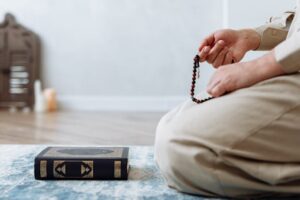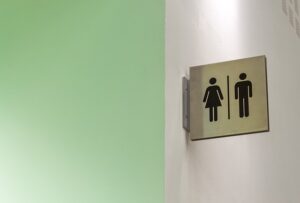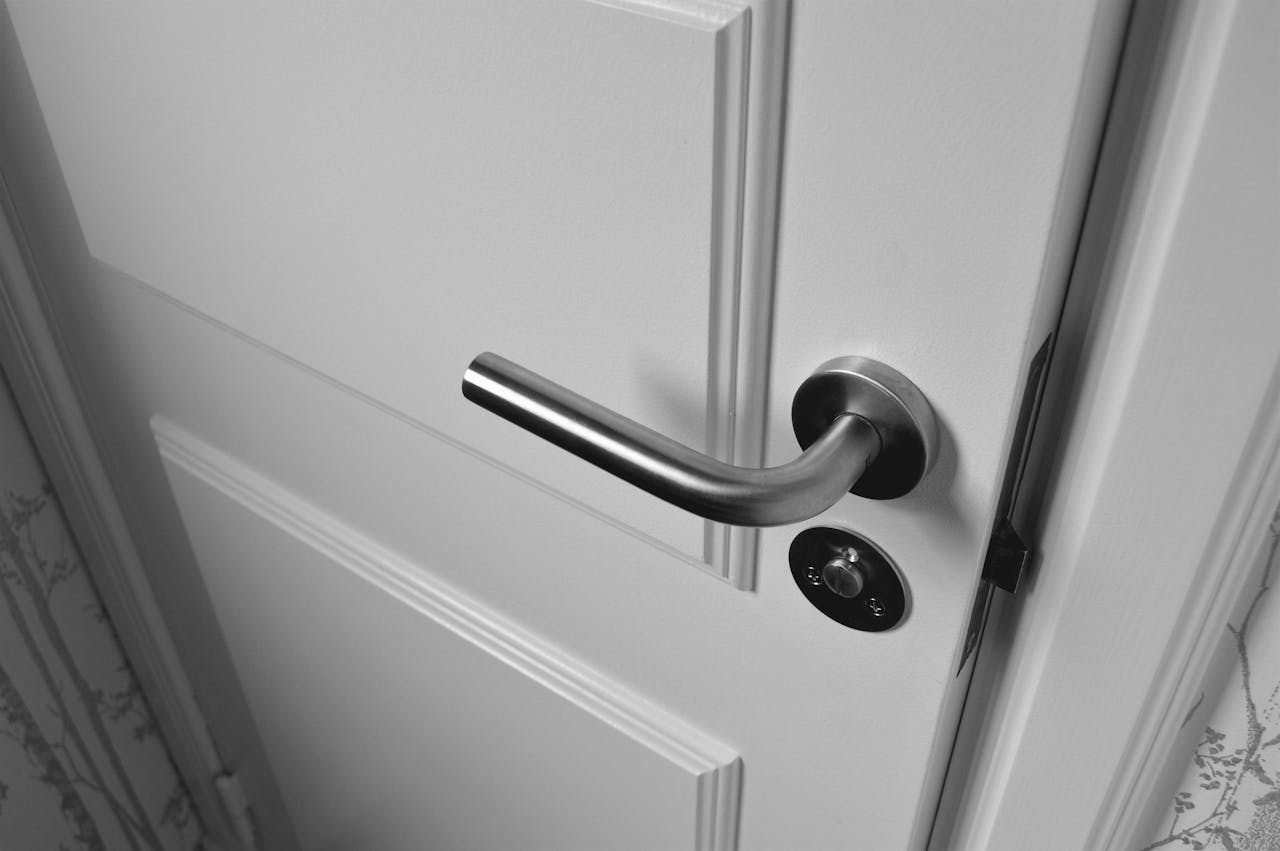
In the Name of Allah—the Most Compassionate, Most Merciful.
In the hustle and bustle of our daily lives, the simple act of entering our homes might seem mundane. Yet, in Islamic tradition, this moment holds profound significance.
It’s a moment ripe with opportunity for spiritual connection, for invoking blessings, and for seeking protection. At the threshold of our homes lies a tradition that transcends the physical, inviting us to pause, reflect, and utter a dua – a supplication that bridges the mundane and the divine.
The dua, when entering a house, is more than just words; it’s a symbol of reverence, a gesture of humility before the Almighty. Rooted in the teachings of the Prophet Muhammad (peace be upon him), this dua serves as a reminder of the sacredness of our homes and the importance of seeking Allah’s blessings as we cross the threshold.
Join us as we explore the depths of this beautiful dua, uncovering its spiritual significance and practical implications for our daily lives.
Discover how a few simple words uttered with sincerity can transform the atmosphere of our homes, infusing them with peace, tranquillity, and divine protection.
Dua When Entering a House

The dua recited when entering a house is a beautiful invocation seeking Allah’s blessings, peace, and protection upon the home and its inhabitants. It is a simple yet profound dua that encapsulates several key concepts in Islam.
Firstly, it emphasizes the importance of starting every action with the name of Allah, recognizing His sovereignty, and seeking His guidance and blessings. By invoking His name, Muslims express their reliance on Allah in all matters, big or small.
Secondly, the dua acknowledges that entering and leaving the home are significant transitions in our lives. It serves as a reminder to be mindful of our actions and intentions as we move between different spaces and responsibilities.
Moreover, it signifies a recognition of the sanctity of the home as a place of refuge and security, where the presence of Allah is sought for protection and blessings. Below is the dua for entering a house.
Arabic Dua
English Transliteration
Bismil-lahi walajna, wabismil-lahi kharajna, waAAala rabbina tawakkalna.
English Translation
(Abu Dawud 4:325)
What Does Allah Say About Home?

In the Quran, Allah speaks extensively about the concept and significance of home, emphasizing its role as a place of comfort, security, and spiritual growth. Here are a few key verses along with their references:
- Surah An-Nahl (16:80):
“Allah has made your houses a place of comfort for you, and made for you houses from the hides of cattle, which you find so light on the day you travel and the day you camp, and out of their wool and their fur and their hair (He created) furnishings and goods of enjoyment for a period of time.” (16:80)
This verse highlights how Allah has bestowed upon humanity the blessing of homes as places of rest and comfort. It also mentions the provision of tents during travel, indicating Allah’s care for our well-being in different situations.
- Surah Al-Baqarah (2:189)
“They ask you ˹O Prophet˺ about the phases of the moon. Say, “They are a means for people to determine time and pilgrimage.” Righteousness is not in entering your houses from the back doors. Rather, righteousness is to be mindful ˹of Allah˺. So enter your homes through their ˹proper˺ doors, and be mindful of Allah so you may be successful.” (2:189)
This verse addresses the etiquette of entering homes and emphasizes the importance of piety and mindfulness of Allah in all actions, including entering and exiting one’s home. It underscores the spiritual dimension of home life and the significance of conducting oneself with righteousness and consciousness of Allah.
These verses collectively illustrate Allah’s guidance regarding the concept of home in Islam, highlighting its importance as a place of rest, tranquility, and spiritual growth and emphasizing the need for mindfulness of Allah in our interactions within the home.
Etiquettes and Sunnah of Entering a Home
The etiquettes and Sunnah (traditions of Prophet Muhammad, peace be upon him) associated with entering a home carry spiritual significance and emphasize the importance of mindfulness, humility, and respect. These practices serve to enhance the atmosphere of the home, inviting blessings and tranquility into its walls:
- Reciting the Dua: Upon entering the home, it is recommended to recite the dua (supplication) for entering a house: “Bismillahi walajna, wa bismillahi kharajna” (In the name of Allah, we enter; in the name of Allah, we leave). This invocation seeks Allah’s blessings and protection for the home and its inhabitants.
- Announcing Your Arrival: When you enter a house, ensure that those inside are aware of your presence before approaching them. Avoid startling or causing any sudden surprises. Abu’ Ubaida’ Amr bin Abdullah bin Mas’ud (may Allah be pleased with him) narrated: “My father, Abdullah ibn Mas’ud, would announce his arrival to his family in a gentle manner.” Both Bukhari and Muslim reported that the Prophet (peace be upon him) admonished those who unexpectedly startled their families at night, whether returning from a journey or not, as it could breed feelings of distrust.
- Etiquettes of Knock: It is courteous to gently knock on the door, ensuring your presence is acknowledged without unnecessary loudness. Al-Bukhari reported in al-Adab al-Mufrad that the companions of the Prophet (PBUH) would gently tap on his door with the tips of their fingers, reflecting the importance of a soft and considerate approach. Allow sufficient time between each knock or ring. Some scholars suggest waiting for a duration equivalent to the time it takes to perform four units of prayer (rakaats). If there is no response after three knocks or intermittent rings, it may indicate that the person you wish to see is occupied. In such cases, it is appropriate to leave, as stated in Al-Bukhari and Muslim.
- When Seeking Permission to Enter: While awaiting permission to enter, avoid standing directly in front of the door. Instead, position yourself to the right or left. Following the example of the Messenger of Allah (peace and blessings be upon him), who would avoid facing the door directly, standing to the side demonstrates respect and consideration for the privacy of the occupants.
- Entering with the Right Foot: It is Sunnah to enter the home with the right foot first, as the Prophet Muhammad (peace be upon him) instructed: “If one of you comes to his wife, let him not come to her from behind, let him not come to her with the left foot first, and let him say: ‘In the name of Allah, O Allah, protect us from Satan and protect what You provide for us from any wrongdoers among them.'” (Sunan Ibn Majah)
- Greeting the Inhabitants: Upon entering the home, it is customary to greet the inhabitants with the Islamic greeting of peace, saying “صلى الله عليه وسلم” (As-salamu alaykum –Peace be upon you). This fosters a sense of warmth and unity within the family. The Prophet (peace be upon him) imparted this wisdom to his devoted companion, Anas bin Malik (RA), advising him to greet his family upon entering or leaving his home. Anas bin Malik (RA) recounted, “The Messenger of Allah said to me, ‘My son, greet your family when you enter [your home], for that is a blessing for you and your family.'” (Imam Tirmidhi)
- Close the Door Politely: When entering or exiting a house, refrain from forcefully pushing or slamming the door, and avoid letting it close on its own. Instead, gently close the door using your hand to minimize noise and disturbance. There’s a hadith reported by Muslim, where Aisha (may Allah be pleased with her) quotes the Messenger of Allah (peace and blessings be upon him): “Gentleness adorns every act. Its absence will tarnish it.”
These etiquettes and Sunnah of entering a home exemplify the teachings of Islam regarding respect, mindfulness, and the acknowledgment of Allah’s blessings. By adhering to these practices, Muslims seek to cultivate an atmosphere of peace, harmony, and spiritual awareness within their homes.
Benefits of Reciting a Dua Before Entering a House
Let’s delve deeper into the benefits of reciting a dua before entering a house:
Invocation of Blessings
Reciting a dua before entering a house serves as an acknowledgment of Allah’s sovereignty and a recognition of His role as the ultimate source of blessings. The recitation of a dua when entering home deepens one’s spiritual connection with Allah, invocating blessings.
It serves as a reminder of His presence in every aspect of life, including the seemingly mundane act of entering a dwelling. This practice encourages individuals to maintain mindfulness of Allah’s presence and to approach their daily activities with a sense of reverence and gratitude.
Protection from Evil
The dua serves as a powerful means of protection against negative influences and harmful forces. By invoking Allah’s name, individuals seek His divine shelter and safeguarding from all forms of harm, whether physical, emotional, or spiritual.
The Prophet Muhammad (peace be upon him) said,
Peace of Mind
Reciting a dua before entering a house brings about a sense of peace and tranquillity within the individual. As they utter the words of the dua, they are reminded of Allah’s protection and guidance, instilling a sense of calm and assurance.
This act of mindfulness allows individuals to enter their homes with a clear and composed mind, free from distractions and worries.
By starting their time at home with a moment of reflection and remembrance of Allah, individuals set the tone for a peaceful and harmonious atmosphere within the household.
Cultivation of Gratitude
Reciting a dua before entering a house fosters a sense of gratitude towards Allah for the blessings of shelter, security, and family. As individuals utter the words of the dua, they are reminded of the countless blessings bestowed upon them by Allah, including the provision of a home to seek refuge.
This act of gratitude deepens their appreciation for Allah’s mercy and generosity, cultivating a humble and thankful heart. By starting their time at home with a moment of gratitude, individuals foster a positive mindset and cultivate a sense of contentment and fulfilment in their lives.
Dua When Leaving Home

This dua is recited when leaving the house and serves as a supplication seeking Allah’s protection and guidance. By reciting this dua, one expresses reliance on Allah and acknowledges His power and control over all matters. It serves as a reminder to place trust in Allah’s plan and seek His assistance in all endeavors outside the home.
Arabic Dua:
English Transliteration:
Bismillahi tawakkaltu ‘alallah, la hawla wa la quwwata illa billah
English Translation:
(Abu Dawud 4:325, At-Tirmidhi 5:490)
Dua When Entering Masjid

This dua is recited upon entering the masjid (mosque) and is a request for Allah’s mercy and blessings. It is a humble plea for divine favor and forgiveness as one enters the sacred space of worship.
By reciting this dua, individuals express gratitude for the opportunity to engage in acts of worship and seek Allah’s blessings for their time spent in the masjid.
English Transliteration:
aAAoothu billahil-AAatheem wabiwajhihil-kareem wasultanihil-qadeem minash-shaytanir-rajeem, [bismil-lah, wassalatu] [wassalamu AAala rasoolil-lah] , allahumma iftah lee abwaba rahmatik.
English Translation:
(Abu Dawud: 4591)
Dua When Entering the Toilet

This dua is recited before entering the toilet and serves as a supplication seeking Allah’s protection. It is a reminder of the importance of seeking refuge in Allah from spiritual harm and impurities. By reciting this dua, individuals seek Allah’s assistance in maintaining purity and warding off negative influences while in the restroom.
English Transliteration:
Bismillahi, allahumma innee a’udhu bika minal khubuthi wal khaba’ith
English Translation:
(Al-Bukhari 1:45, Muslim 1:283)
Summary – Dua When Entering Home
In Islam, every action is an opportunity for remembrance and supplication. There exists a dua, a prayer, to accompany each step of our daily journey. And the act of entering our homes is no exception.
The dua when entering a home encapsulates the essence of Islamic tradition, serving as a bridge between the mundane and the divine. Through its recitation, individuals not only seek blessings and protection for their households but also cultivate a deeper spiritual connection with Allah.
As this cherished tradition is passed down through generations, it continues to enrich the lives of Muslim households, fostering unity, faith, and gratitude. By reflecting on the significance of this practice and incorporating it into their daily lives, individuals can infuse their homes with peace, tranquillity, and divine guidance.
Ultimately, the dua stands as a testament to the beauty of Islamic spirituality, reminding us of the importance of seeking Allah’s blessings and protection in every aspect of our existence.
Related Articles






